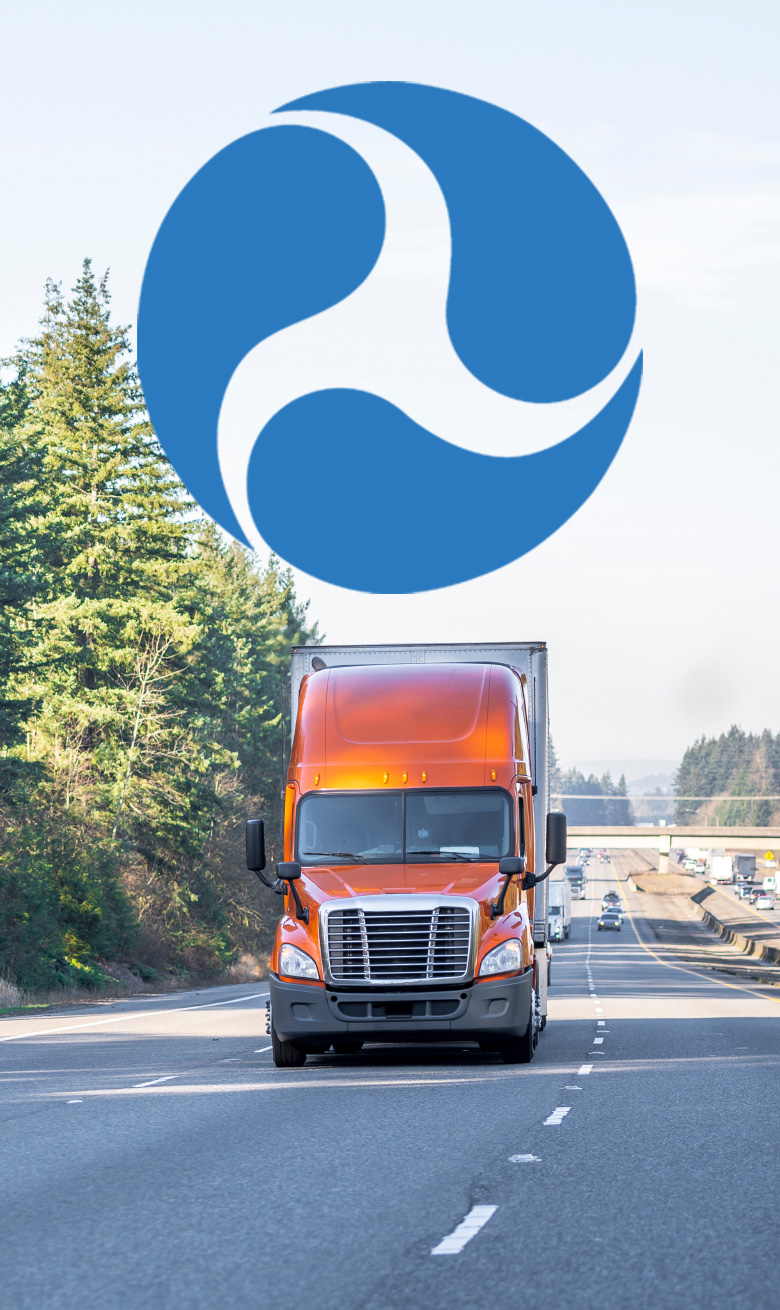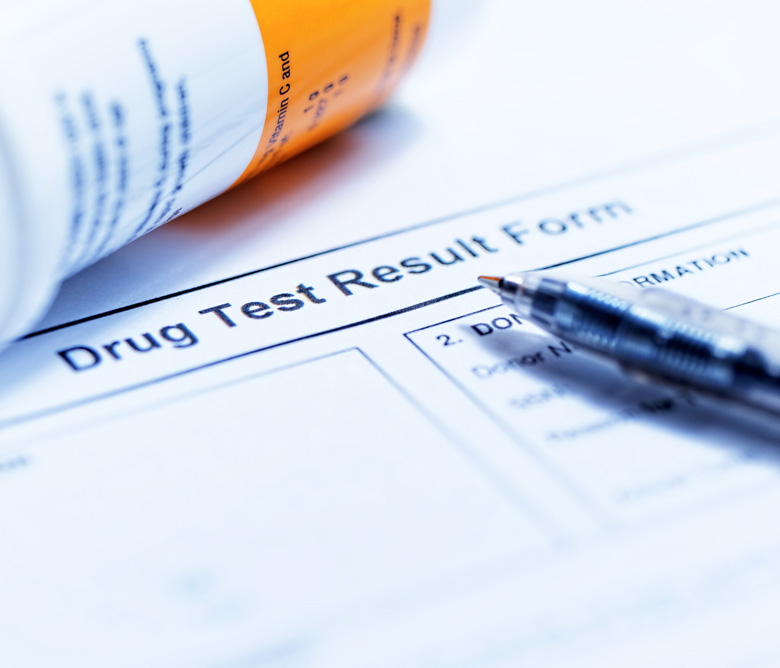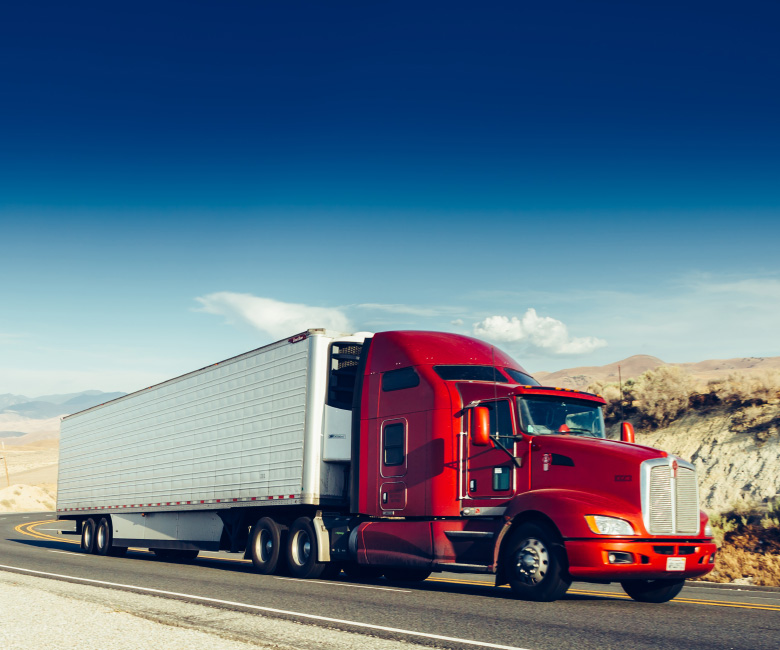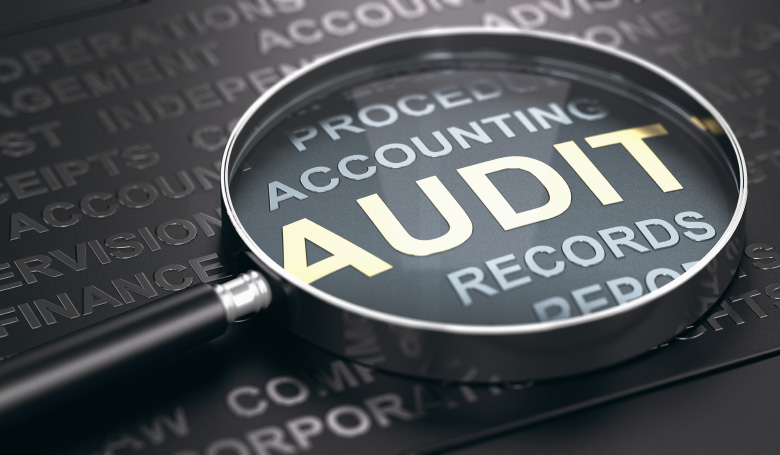Safety and Compliance
KOVALUX offers a full range of services to support the transport business, including compliance with security in accordance with the requirements of FMCSA.
We understand that compliance with all requirements and laws is a difficult task, so for your peace of mind We are ready to take care of ensuring compliance with all requirements FMCSA rules for your business. KOVALUX is always aware of all changes in the rules and compliance regulations, so we have an individual approach to each client depending on their specifications of transportation.
Our team ensures that any security checks are passed without difficulty, meeting drug and alcohol testing standards and transportation requirements. Our clients can be sure that their fleet operates safely on the roads.
Clearinghouse
The Clearinghouse is a secure, online database that makes CDL drivers’ drug and alcohol testing available to federal and state agencies, testing laboratories, state DOTs, state troopers, and trucking companies.

Who is required for Clearinghouse?
- Drivers who hold a commercial driver’s license (CDL) or commercial learner’s permit (CLP)
- Employers of CDL drivers who operate commercial motor vehicles (CMVs)
- Consortia/third-party administrators (C/TPAs)
- Medical review officers (MROs)
- Substance Abuse Professionals (SAPs)
The Clearinghouse final rule requires the following:
Employers must query the Clearinghouse for current and prospective employees' drug and alcohol violations before permitting those employees to operate a commercial motor vehicle (CMV) on public roads.
Employers must annually query the Clearinghouse for each driver they currently employ.
The Clearinghouse provides FMCSA and employers the necessary tools to identify drivers who are prohibited from operating a CMV based on DOT drug and alcohol program violations and ensure that such drivers receive the required evaluation and treatment before operating a CMV on public roads. Specifically, information maintained in the Clearinghouse enables employers to identify drivers who commit a drug or alcohol program violation while working for one employer, but who fail to subsequently inform another employer (as required by current regulations). Records of drug and alcohol program violations will remain in the Clearinghouse for five years, or until the driver has completed the return-to-duty process, whichever is later.
KOVALUX offers you the creation of Clearinghouse accounts for your company, and hired drivers. We guarantee the quality of our services, as we constantly monitor all changes in FMCSA regulations. Employees of our company have practical experience, so we create and configure accounts in accordance with applicable requirements and rules. By working with us you can be sure that everything is done with high quality and on time.
Drug and Alcohol Testing Program
The Federal Motor Carrier Safety Administration (FMCSA), along with the Department of Transportation (DOT), requires that persons subject to the commercial driver’s license (CDL) requirements and their employers follow alcohol and drug testing rules. These rules include procedures for testing, frequency of tests, and substances tested for. Random Drug & Alcohol Testing is a DOT mandatory regulation required by Federal Motor Carrier Safety Administration.
Who's Impacted?
- Anyone employing CDL drivers to operate commercial motor vehicles (CMVs) on public roads
- CDL drivers who operate CMVs on public roads
- Interstate motor carriers
- Intrastate motor carriers
- Federal, State, and local governments
- Civic organizations (disabled veteran transport, boy/girl scouts, etc.)
- Faith-based organizations


Drug and Alcohol Consortium
The Federal Motor Carrier Safety Administration (FMCSA), along with the Department of Transportation (DOT), require that drivers with a commercial license (CDL) must be enrolled in a drug and alcohol consortium. Individuals randomly selected by the program each quarter must complete mandatory testing.
What is Random Drug & Alcohol Testing?
Random Drug & Alcohol Testing is a DOT requirement that is mandatory for all CDL drivers operating trucks over 26,000 lbs. The purpose of Random Testing is to make sure that drivers are not abusing drugs and/or alcohol while on duty.
What is a Consortium?
Random Testing works by selecting drivers from a certain group. This group of all drivers is called a Consortium, sometimes referred to as random pool.
Do not confuse Pre-Employment Drug Test and Random Drug Test.
Pre-employment – An employer must receive a negative drug test result BEFORE permitting a CDL driver to operate a CMV.
Random - CDL drivers must be randomly tested throughout the year; an employer who employs only himself/herself as a driver, who is not leased to a motor carrier, shall implement a random testing program of two or more covered employees in the random testing selection pool as a member of a consortium.
Most small companies that do not qualify to create their own consortium must join a larger consortium.
We offer services to include your company in the Random Drug and Alcohol Consortium. Our team of specialists will make this program understandable for you, regardless of the number of drivers working in your company. We will take over the solution of all tasks, including the assignment of appointments for passing pre-employment tests and control the receipt of test results.
What happens when a carrier passes or fails a Safety Audit?
Once the Safety Audit is complete, the auditor will review the findings with the carrier. Within 45 days, the carrier will receive written notification from FMCSA confirming that they have passed or failed.
The carrier's safety performance will continue to be closely monitored for the remainder of the 18-month new entrant period. If no subsequent safety problems are found, the carrier will be granted permanent operating authority and continue to be monitored under CSA.
FMCSA will provide the carrier written documentation detailing the violations that caused the carrier to fail and the requirements for developing a corrective action plan (CAP). The CAP must explain the actions the carrier will take to address the violations identified. CAPs must be submitted to the FCMSA Service Center within the number of days specified on the failure notification. Failure to either submit a CAP, or implement the corrective actions, will result in loss of FMCSA registration.




